Sacred Verses : Poetry as Humanity’s Quest for the Divine
POETRY EXPLORATION BY TEGEDAO
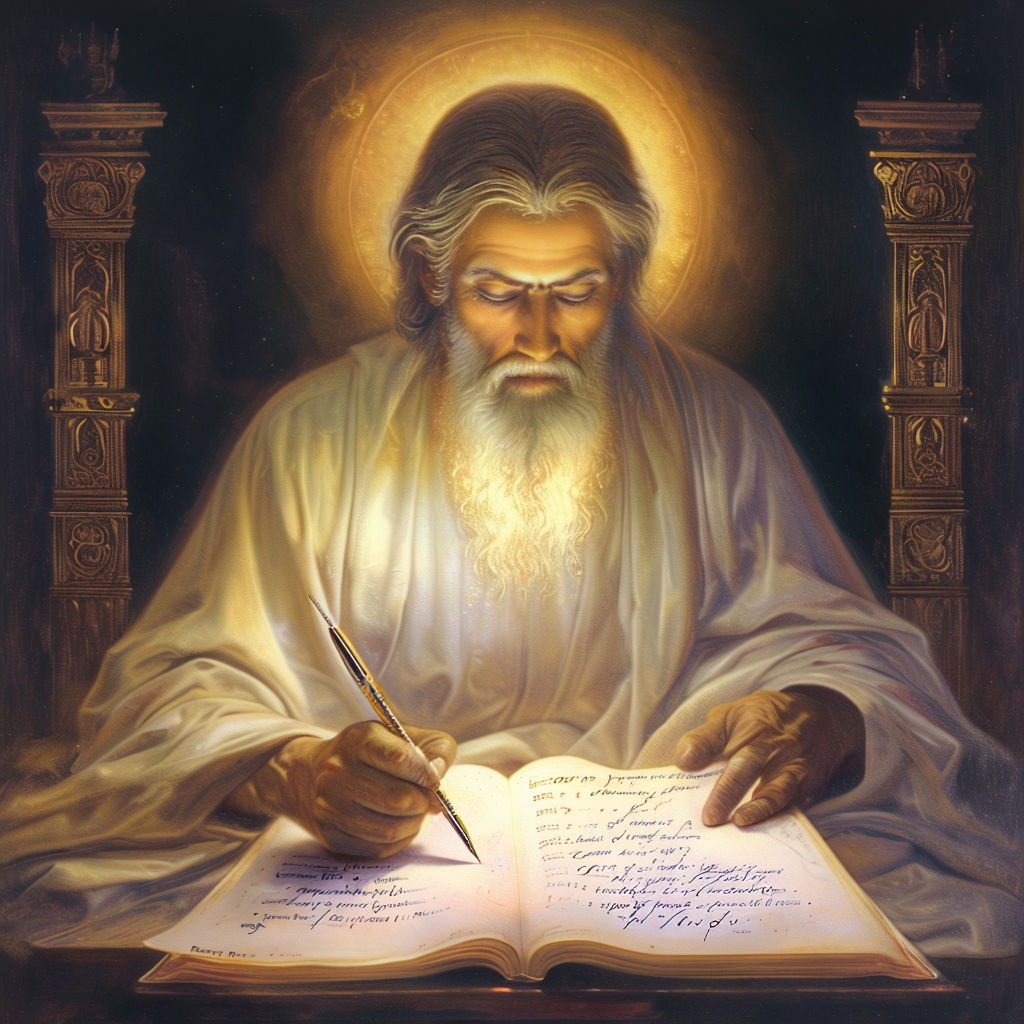
From ancient hymns carved on temple walls to whispered verses beneath star-lit skies, poetry has long been humanity's way of conversing with the cosmos. Across civilizations, poets have reached beyond the mundane to capture something of the divine, attempting to understand existence and our place within it. The language of poetry, filled with metaphor, rhythm, and imagery, becomes a vessel through which humanity explores the mysteries of creation, spirituality, and our enduring connection to something greater.
The Origins of Cosmic Poetry: Egypt and Sumer
One of the earliest known poetic attempts to understand the divine can be traced to ancient Egypt, where the *Pyramid Texts*—inscribed over 4,000 years ago—sought to secure the journey of the pharaohs to the afterlife. These texts were more than religious rituals; they were poetic expressions of human vulnerability in the face of death and the eternal. Egyptian poets used hieroglyphic metaphors to depict the cosmos as an orderly kingdom governed by the gods, where each celestial body moved according to divine laws. By writing of the stars, rivers, and deserts as manifestations of gods, these poets immortalized humanity’s yearning for cosmic order and continuity.
In ancient Sumer, one of humanity’s first recorded poems, *The Epic of Gilgamesh*, similarly contemplates humanity’s place in the universe. Through Gilgamesh’s journey to discover immortality, the poem speaks to universal themes of mortality, friendship, and the divine. Sumerian poets framed existence as a delicate balance between the human and divine worlds, and their work serves as a reminder of poetry’s role in translating existential questions into language.
Eastern Mysticism: India and China
In India, the *Rigveda*—a collection of hymns from around 1500 BCE—offers profound reflections on the cosmos. Its verses attempt to bridge the tangible and intangible realms, depicting the creation of the universe as an act of divine sacrifice. The *Nasadiya Sukta*, or the Hymn of Creation, is especially striking in its philosophical tone, questioning the origin of existence itself: "Who really knows? Who will here proclaim it?" This rhetorical humility and openness reflect the Indian worldview of interconnectedness, a cosmic unity that poetry encapsulates.
Meanwhile, in ancient China, the *I Ching* (Book of Changes) and *Dao De Jing* (The Way and Its Power) inspired a different poetic language. Chinese poets engaged with nature as a divine mirror, capturing the cyclical patterns of the cosmos in delicate, concise verses. By aligning themselves with natural rhythms, poets like Li Bai and Wang Wei found in the stars, rivers, and mountains a sense of cosmic flow, where humanity’s role was to move harmoniously within it. This approach reflects the Daoist belief in oneness with the Tao, the great principle that connects all things.
In India, the poetic tradition of the Vedas and epics such as the Mahabharata and Ramayana demonstrate a profound understanding of the human condition. The Vedic hymns celebrate the mysteries of existence, blending spirituality with poetry to explore the cosmic order. Later, the Bhagavad Gita, set within the Mahabharata, delves into ethical dilemmas and the nature of duty, reflecting a universal struggle between personal desires and social responsibility. Through these texts, Indian poets articulate themes of love, conflict, and transcendence that continue to resonate with people across cultures and ages.
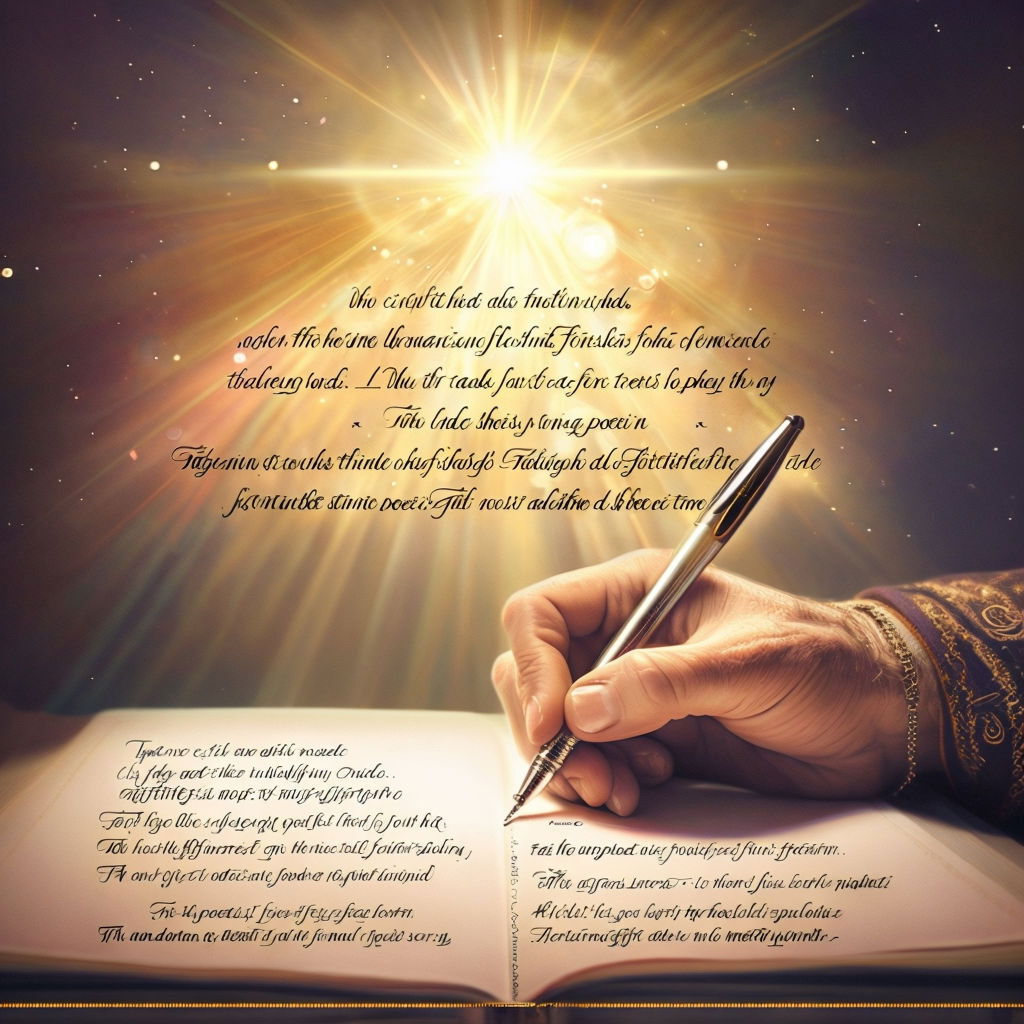
Chinese poetry, particularly during the Tang Dynasty, offers another lens into the collective human experience. Poets like Li Bai and Du Fu wrote about nature, friendship, and solitude, blending personal reflection with universal themes. Their poems evoke an intimate relationship with the natural world, capturing fleeting moments of beauty that resonate with anyone who has felt the passage of time. The simplicity and elegance of their language belie the depth of insight, revealing a shared human capacity for awe and appreciation of life’s ephemeral nature.
Greek and Roman Visions: Cosmic Order and Tragic Insight
In ancient Greece, the works of poets such as Homer and Hesiod offer a lens into a world where gods and mortals exist in close interaction. The Greeks envisioned the cosmos as a divinely ordered realm governed by powerful, capricious gods, and poetry became a way to explore humanity’s vulnerability within this framework. The *Iliad* and *Odyssey* not only narrate epic adventures but also touch upon the limitations of human knowledge and the inevitability of fate—a theme that later philosophers like Socrates would elaborate on. Greek poetry thus serves as a reminder of humanity's limitations, yet also celebrates our capacity to endure.
Roman poets, particularly Lucretius in his work *De Rerum Natura* (On the Nature of Things), took a different approach, blending Epicurean philosophy with poetic verse. Lucretius sought to explain the cosmos through reason, arguing that all things are made of atoms moving in a void, yet his language retained a reverence for the universe’s complexity. His poetic descriptions of cosmic phenomena reflect a desire to understand the universe without diminishing its majesty.
The Mystical Middle Ages: Sufi Poets and Christian Mystics
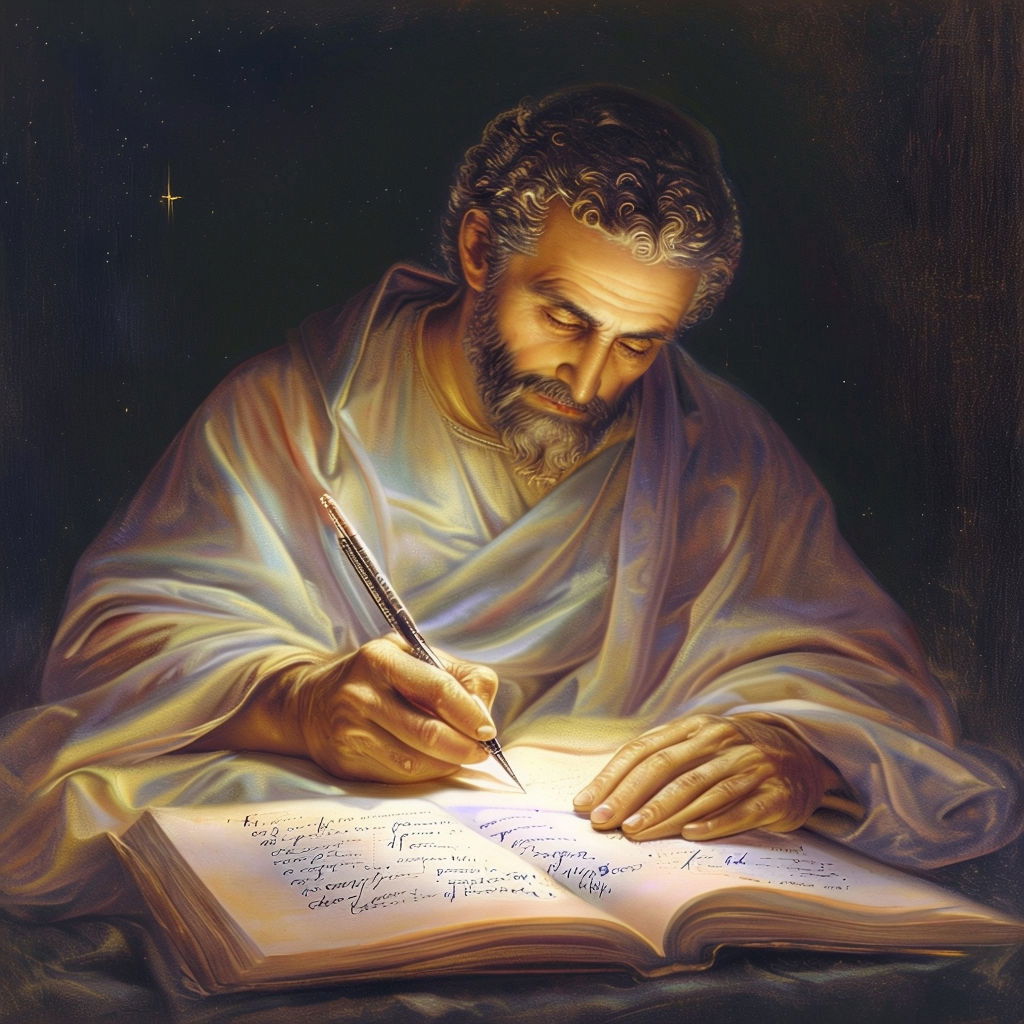
In the medieval period, mystical poets in both Islamic and Christian traditions found new ways to articulate the divine. Sufi poets like Rumi and Hafez sought transcendence through ecstatic verse, dissolving the boundary between self and cosmos in their quest for unity with the Divine. Rumi’s poetry often speaks of the soul as a divine spark longing to reunite with the cosmic flame, while Hafez’s verses celebrate the beauty of creation as a manifestation of divine love. This blending of personal and cosmic love emphasizes a spirituality where poetry becomes a journey toward the divine.
Christian mystics, too, found in poetry a way to communicate their encounters with God. St. John of the Cross, in his *Dark Night of the Soul*, uses the metaphor of darkness to convey the soul’s path toward enlightenment. By embracing the paradoxes of light and darkness, absence and presence, he expresses the complexities of spiritual union, where poetry serves as both expression and prayer.
The Indigenous Voice: The Americas
The oral traditions of Native American tribes, for example, are filled with poetry that celebrates the natural world and humanity’s place within it. These poems and songs, often passed down through generations, express themes of survival, gratitude, and reverence for nature. They remind us of humanity’s profound connection to the earth and the importance of harmony between people and the environment—a theme that has found renewed relevance in today’s world.
The Renaissance and Enlightenment: A New Vison of Humanity
During the Renaissance, European poets began to explore the individual’s place within a rapidly changing world. Shakespeare’s sonnets, for instance, delve into themes of love, beauty, and mortality, expressing the complexities of human emotion with profound insight. His exploration of the human psyche, with all its contradictions and desires, speaks to a universal experience that resonates across time and place.
The Enlightenment brought a different perspective, as poets like Alexander Pope examined humanity’s limitations and potential. In An Essay on Man, Pope explores humanity’s role within the larger cosmic order, blending philosophical reflection with poetic elegance. His verses reflect a growing awareness of humanity’s responsibility and agency within the natural world, a theme that continues to inspire readers in our own era.
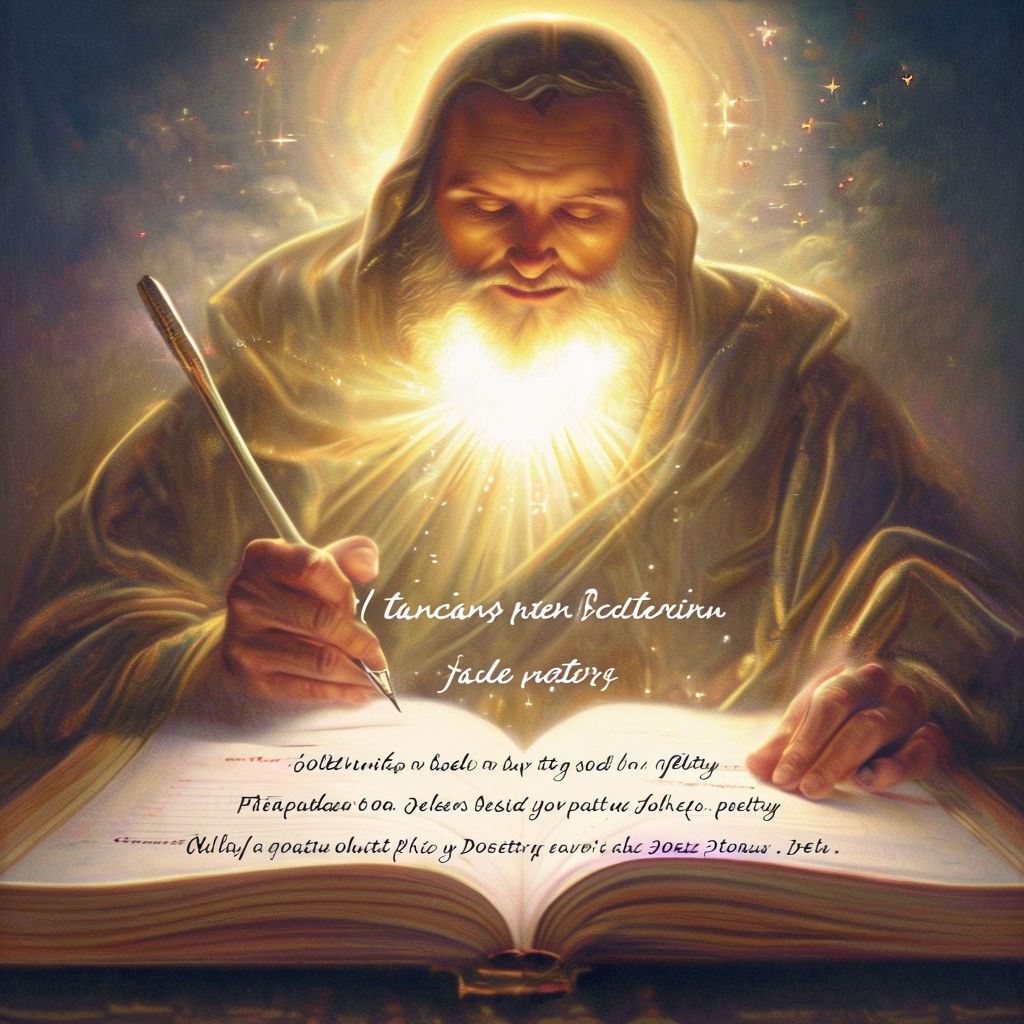
The Enlightenment and the Romantic Cosmos
In the 18th and 19th centuries, Enlightenment and Romantic poets revisited the cosmos with new fervor. Romantic poets, such as William Blake and William Wordsworth, reacted against the mechanistic worldview of the Enlightenment by reimagining the universe as a living, breathing entity. Blake’s poetry often speaks of the divine in nature, while Wordsworth finds “a sense sublime” in the natural world that reveals “something far more deeply interfused.”
For the Romantics, poetry became a way to reclaim the cosmos from the reductionist view, to see the universe as imbued with mystery and divinity. By using the language of awe and reverence, they connected the human spirit with the sublime, reflecting an intrinsic yearning for cosmic belonging.
Poetry and the Divine in Modernity
In modern times, poets continue this dialogue, often grappling with the existential disillusionment of a world that seems increasingly detached from cosmic purpose. T.S. Eliot, in *The Waste Land*, speaks to the disintegration of a once-ordered universe, capturing the modern experience of spiritual desolation. Yet, poets like Pablo Neruda and Mary Oliver return to nature as a source of divine connection, finding in the simple beauty of earthly life a reminder of humanity’s place within a larger cosmic web.
Neruda’s *Elemental Odes* speak to the beauty of everyday objects as revelations of the divine, while Oliver’s nature poetry invites readers to find sacredness in the ordinary world. In this way, modern poetry retains the ancient impulse to connect with the cosmos, to make sense of life’s mysteries through the sacred language of verse.
Conclusion: Poetry as a Universal Bridge to the Divine
Through every epoch and culture, poetry has provided humanity with a language to speak to the cosmos. Whether through hymns, metaphysical musings, or nature-inspired verses, poets have continuously sought to understand humanity’s connection to the divine. This enduring poetic tradition reminds us that, even as our understanding of the cosmos evolves, our need to find meaning within it remains constant. Poetry, in all its forms, will always be humanity’s way of reaching toward the infinite, of expressing the unutterable mysteries of existence, and of affirming our place in the vastness of the universe.
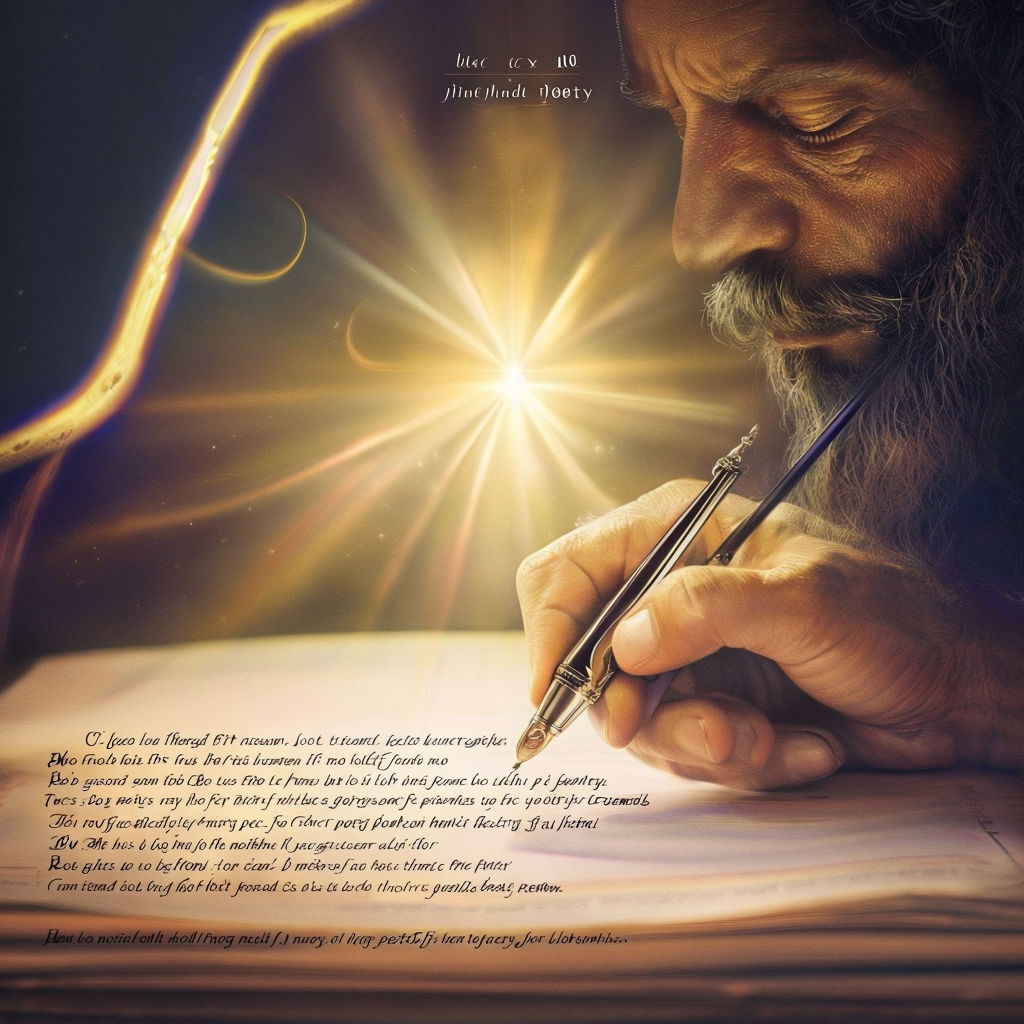
--